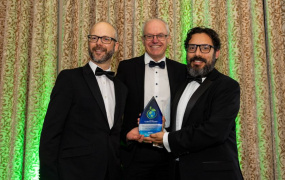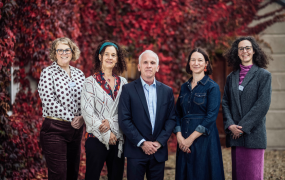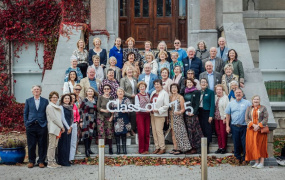IPS Conference 2023 - Moral Development and Moral Failure
About
The Department of Philosophy at MIC hosted the 2023 Irish Philosophical Society (IPS) Conference on Friday 20 & Saturday 21 October. The theme of the conference was 'Moral Development and Moral Failure', and the keynote speakers were Lisa Tessman (Binghamton University in New York), Christopher Crowley (UCD) and Katy Dineen (UCC).
The twin issues of Moral Development and Moral Failure have been at the core of philosophical reflection on ethics at least since Socrates. Following the Athenian philosopher, the Stoics, St. Augustine, Kant, and many others to this day, have asked why human beings do wrongs knowingly and how it is that we come to an understanding to distinguish right from wrong?
The question of moral development concerns fundamental themes of both moral education and moral anthropology. Is the human being ‘by nature evil’ as Kant would claim or, from a more Rousseauean point of view, is the goal of moral education to nurture the innate goodness of the human being? Furthermore, to what extent is the understanding of moral development guided by presuppositions about moral reasoning that may be biased in cultural, gender or other terms? Moral development has historically been closely tied to religious claims about human nature and destiny. Can we set those claims aside within a secular context or is the relation of moral development and religion still significant?
The phenomenology of moral choice confronts us necessarily with the reality of wrong-doing. Free choice seems to imply the possibility of conscious wrong-doing, yet the motivation of such choice is a matter of contention since earliest reflections on the topic. The Genesis myth suggests a transcendent source of temptation, while Socratic and Stoic accounts stress ignorance as the cause of wrong-doing. Yet, the situation of moral choice is not always a straightforward one. Are there instances in which moral failure is inevitable such as in moral dilemmas, that the demands of morality are impossible to meet? A fundamental principle of moral philosophy, whether deontological or consequentialist, is that 'ought' to imply 'can'. But is it consistent to hold in certain instances that an 'ought' does not imply a 'can'?
Programme
Keynote Speakers
We were delighted to have three great keynote speakers for this Conference:
Christopher Crowley, UCD, teaches philosophy at University College Dublin. He is interested in ethics, philosophy of law, action theory, and the philosophy of religion. Amongst his publications are Moral Responsibility (Routledge 2013) and Medical Ethics, Ordinary Concepts and Ordinary Live (Palgrave MacMillan, 2008). He is currently working on a collaborative project concerning the philosophy of criminal law.
Katy Dineen, UCC, is a lecturer in teaching and learning enhancement with the Centre for the Integration of Research Teaching and Learning and an assistant lecturer with the Department of Philosophy at University College Cork. Her research interests are in inclusion, philosophy of education and the philosophy of Immanuel Kant. Her publications include work on misogyny and moral education, intersectionality and health, and childism or systemic prejudice against children.
Lisa Tessman, Binghamton University in New York, is a Professor of Philosophy at Binghamton University in New York, and a Senior Researcher at the University of Oslo. She works in ethics, moral psychology, and feminist philosophy, with a focus on how people experience morality under difficult conditions. Her books include When Doing the Right Thing Is Impossible (2017), Moral Failure: On the Impossible Demands of Morality (2015) and Burdened Virtues: Virtue Ethics for Liberatory Struggles (2005). She is currently doing collaborative work on moral residue.
- About
- Keynote Speakers







